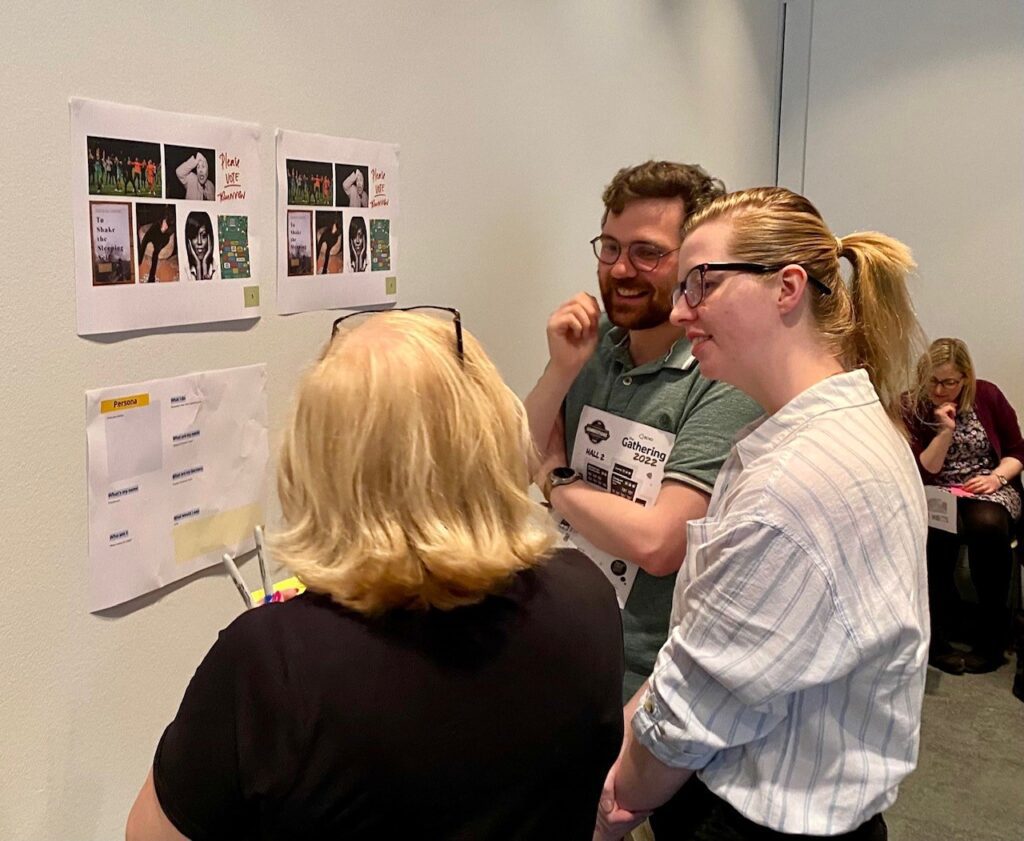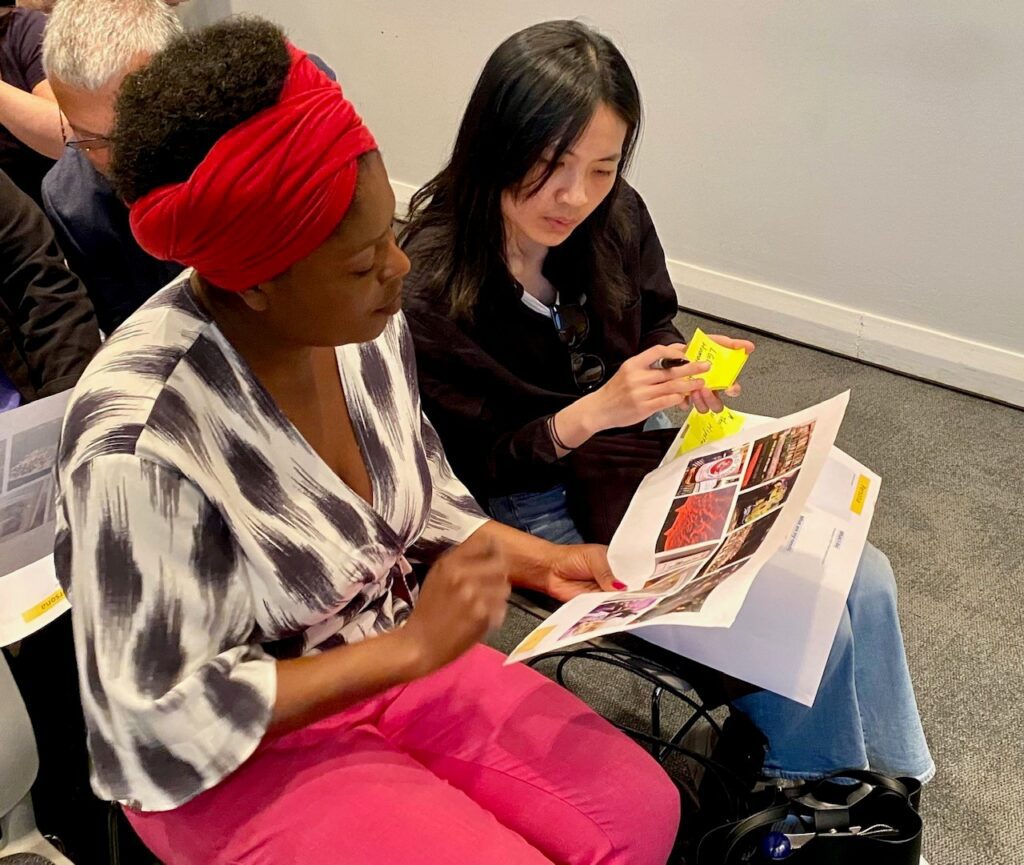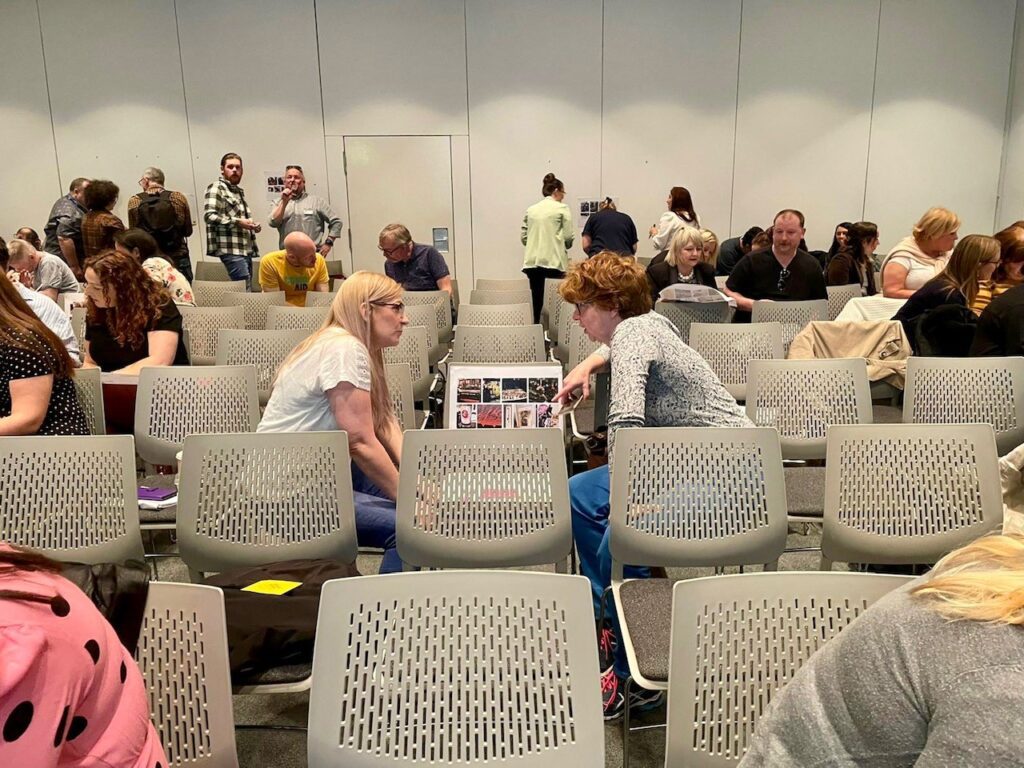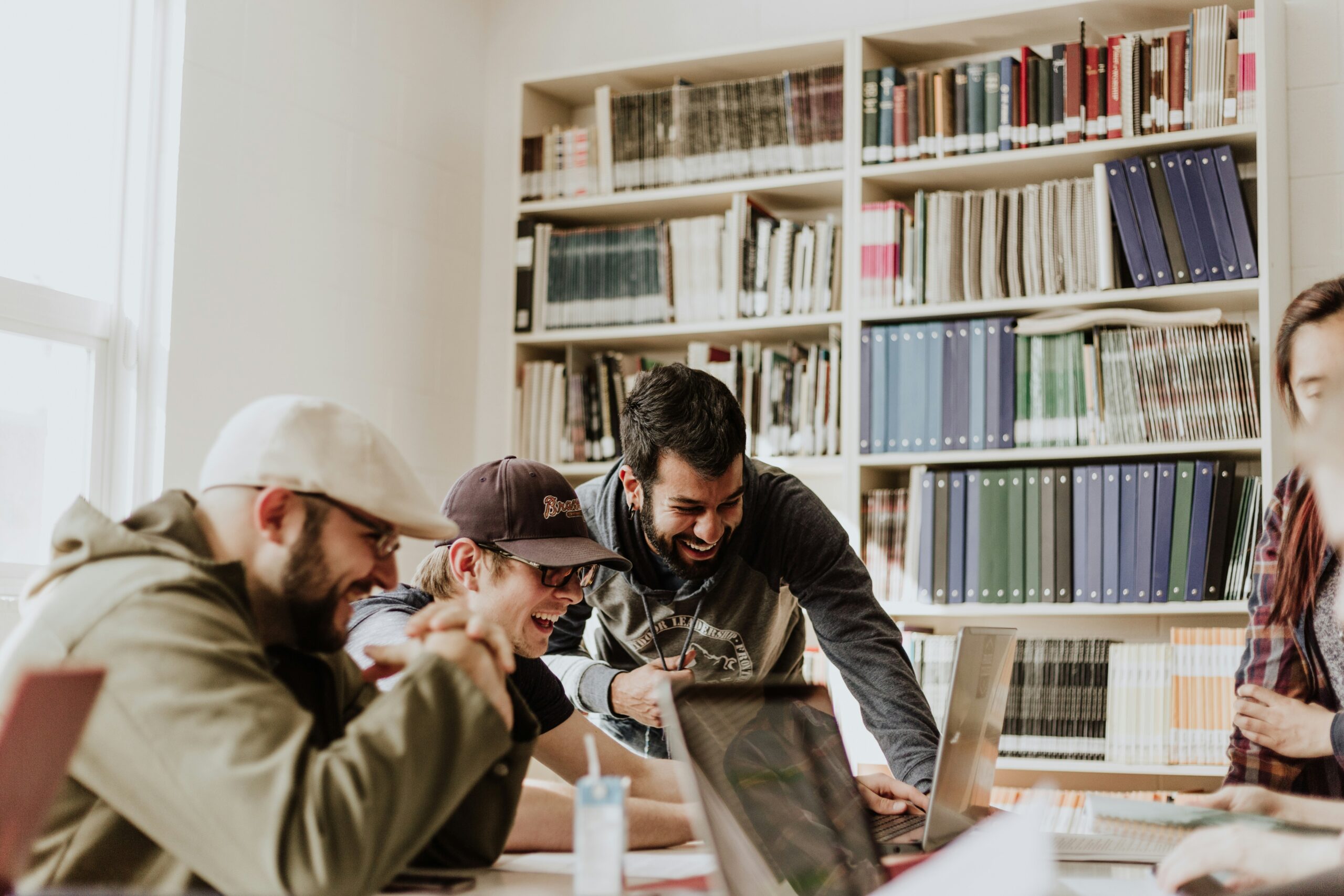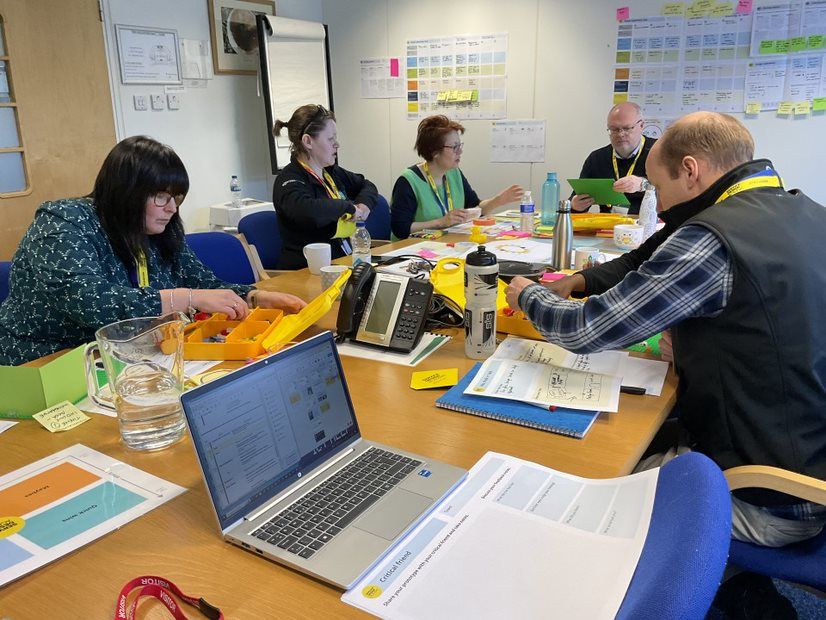For our interactive presentation at this year’s SCVO The Gathering we focussed on Assumptions and Biases and how these impact on our daily decisions when we are thinking about the services we deliver for our communities.
The Gathering 2022 took place at Glasgow’s SEC on 15 and 16 June 2022, organised by SCVO, it’s the largest voluntary sector event in the UK. Over two days, amazing people from the voluntary sector and beyond came together to enjoy a packed programme of over 80 workshops, seminars, and training sessions.
2,000 delegates attended including voluntary sector staff, volunteers, board members and trustees from charities, social enterprises and community groups, politicians, academics and journalists, students, and members of the public.
SDA joined forces with our partners at the Scottish Digital Academy, yes, that’s 2 x SDA’s, we know right! We find it confusing too ?
Over 100 delegates heard from Dean Rhodes, Senior Agile Coach about the Digital Academy and its Enhanced Course Offer where they select partners to deliver courses where they lack expertise or the capacity to deliver programmes. The Service Design Academy is one of their key partners delivering Service Design education and training programmes.

Assumptions and Biases impact on our daily decisions. It’s something we cover in all our courses.
We used a technique called Breaking Down Assumptions and there was a great buzz in the room when we revealed our first assumption based persona was Nicola Sturgeon, Scotland’s First Minister! What’s the point of assumption-based personas? They let you see exactly what our brains do when presented with information and the biases we make and take from that information.

Source: https://cpdonline.co.uk/knowledge-base/business/controlling-overcoming-unconscious-bias/
We explained that our biases are influenced by our:
- Background
- Family
- Friends
- Education
- Personal experiences
- Media influences
- Societal stereotypes
- Cultural context
and that these can get in the way of designing inclusive services. As Kat Holmes, Author of Mismatch : How Inclusion Shapes Design says, “the things we make reflect our biases”.
So how might we innovate to deliver better services for our communities?
If we take a co-design approach to designing services, we encompass various methods and communications which lead to meaningful participation in design.
Photos courtesy of Dean Rhodes on Twitter
User’s voice is at the heart of co-design, where engaging service users in developing and deciding on solutions that will affect them is essential to its success.
Through the power of User Research and Co-Design we can:
1 Reduce risk
2 Drive out inefficiency
3 Engage all stakeholders (removing biases and
assumptions)
4 Deliver Better Services
Thanks to everyone who signed up for, and attended our session, we look forward to continuing conversations with Scotland’s charities.
If you missed the session and would like a free copy of our slide deck please contact Maralyn Boyle

